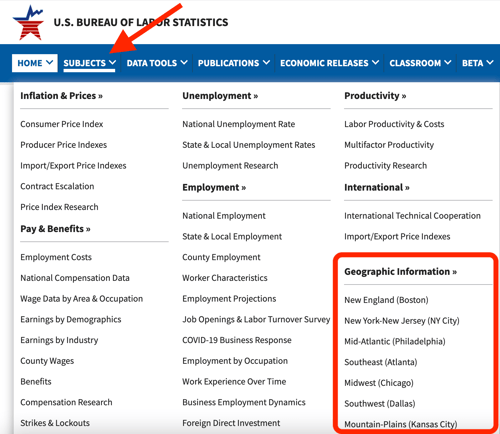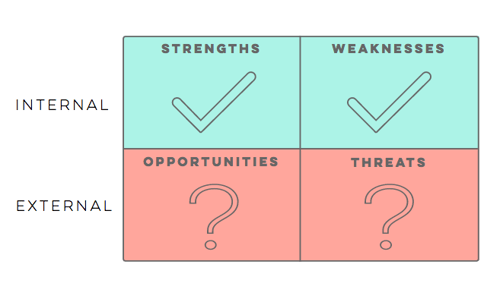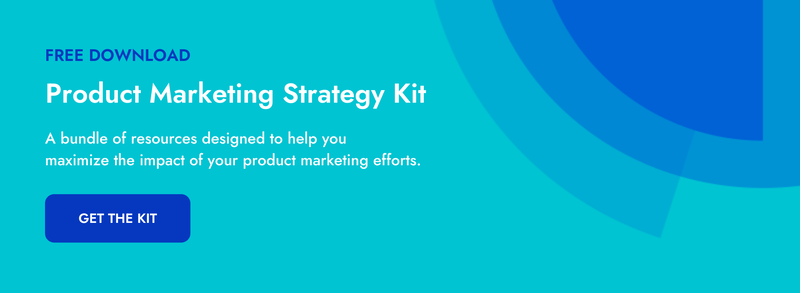 Crayon's Product Marketing Spotlight is an interview series where we chat with product marketers to get a glimpse into their careers and gain unique insight into product marketing strategy. In this edition of Product Marketing Spotlight Series, we shine the light on Andrew McCotter-Bicknell, Associate Product Marketing Manager at ZoomInfo powered by DiscoverOrg.
Crayon's Product Marketing Spotlight is an interview series where we chat with product marketers to get a glimpse into their careers and gain unique insight into product marketing strategy. In this edition of Product Marketing Spotlight Series, we shine the light on Andrew McCotter-Bicknell, Associate Product Marketing Manager at ZoomInfo powered by DiscoverOrg.
ED: What is your role?
AM: I’m an Associate Product Marketing Manager at ZoomInfo Powered by DiscoverOrg, responsible for enabling our go-to-market teams for upcoming product launches and promotions. This involves fundamentally understanding the functionality and value proposition of each release, translating it to our brand’s voice, and building messaging that’s easily digestible for both internal and external audiences.
Elevate your product marketing strategy with this free kit >>
ED: What does the company do?
AM: ZoomInfo Powered by DiscoverOrg is the result of the two industry-leading organizations, ZoomInfo and DiscoverOrg, joining forces to create a new one-stop-shop for the world’s most accurate, actionable, and complete B2B data.
It’s an exciting time for sales and marketing intelligence. Just a few years ago, we were in a niche community of vendors that were treated as a “supplement” to an organization’s existing tech stack. Now, instead of a “nice to have,” it’s a “need to have.”
Everyone needs direct dials. Everyone needs verified email. Everyone needs news, tech, and funding alerts. I could go on (intent data, org charts, company attributes, a list builder, ABM tools, enrichment, human verification…), but you’re probably picking up what I’m putting down. ZoomInfo Powered by DiscoverOrg is the only data provider that can give go-to-market teams high-quality, in-depth data at a massive scale (hundreds of millions of records)!
ED: Did you always know you wanted to be in Product Marketing? What led you to working in Product Marketing today?
AM: I majored in Marketing, but I really struggled to figure out what I wanted to specialize in. It all seemed interesting after I graduated - SEO, Demand Gen, Customer Marketing… even areas outside of Marketing, like Graphic Design, appealed to me.
With all of this interest in Marketing, it was ironic that my first job out of college was actually in Sales as an Account Coordinator. This experience, however, ended up being hugely influential on my Marketing mindset. I was able to develop a Sales-specific point of view and understand the kinds of conversations they have, the tools they benefit from, and their pain points.
Because of this, the transition to Product Marketing worked out really well. I’m able to get hands-on, in-depth looks at unreleased products and features at ZoomInfo, and communicate their value to Sales, as well as my peers in Marketing.
ED: What is something you wish you knew earlier in your career?
AM: Patience is a virtue. Here are a couple reasons why:
- I wanted to jump right into marketing after I graduated, but if I hadn’t taken the time to understand how other departments work, or developed my Sales skill set, I would’ve fallen flat.
- It takes consistent effort to make yourself known as a resource to other departments (especially if you work in a mid to enterprise-sized organization). Understanding the individual workflows of other departments (Sales, Demand Gen, Customer Marketing, Customer Support, Product Management, Creative, Legal, Operations…) is critical before you can become effective and impactful within your organization, and that doesn’t happen overnight.
ED: What advice do you have for someone who wants to transition into a product marketing role?
AM: Come prepared to learn every day, be flexible, and be NICE! Most of the job revolves around collaboration, and nobody wants to collaborate with a grumpy marketer.
ED: Product Marketers have a lot of different responsibilities. How do you prioritize what to focus on?
AM: At any given time, my department is planning 5+ launches, all deploying at different points within a six-month time frame. We have a tiering system that’s worked really well for us (i.e. “Tier 1 - Major,” “Tier 2 - Minor,” and “Tier 3 - Mini”). It takes into account the impact of the launch, and gives my team a north star of sorts when we need to refocus. I highly recommend using a project management tool like Asana - especially when working cross-functionally with other departments!
ED: How do you build and maintain relationships cross-functionally within your organization?
AM: It all boils down to consistently delivering for your peers. Then it’s just a matter of trust! I can’t emphasize enough the value in saying “yes” whenever you’re asked for help (especially early in your career).
Interestingly enough, I’ve seen a lot of articles focusing on the value of saying “no” when asked for help to avoid spreading yourself too thin, burnout, etc. I really disagree with this. When someone approaches you for help, and you say “no,” you’re shutting down the possibility for building a new relationship, exceeding expectations, or learning something new. There’s a small percentage of people in an organization that should value saying “no,” and they likely know who they are.
ED: What advice do you have for someone who is starting a competitive intelligence strategy for the first time?
AM: Invest in Crayon and make sure you have a constant dialogue with your analyst. They will help you dig up insights on your competitors that you’re interested in most.
Aside from investing in Crayon: make sure you have a firm handle on the specific competitors being mentioned by prospects / customers. Many times, organizations are building talk tracks and battlecards against competitors that aren’t even in the conversation. The resources you’re building need to be relevant for your go-to-market teams to utilize them.
ED: What’s the best career advice you’ve ever received?
AM: Don't follow your passion; rather, let it follow you in your quest to become, in the words of Steve Martin “so good that they can't ignore you.”
ED: What’s the best book you’ve read recently? (work or non-work related!)
AM: I pulled the above quote from a great book by Cal Newport, also titled So Good They Can’t Ignore You. The basis of the book pushes back on the trendy notion that everyone should quit their corporate jobs and pursue their respective “passions.” Newport’s advice is instead to grow into your current role and develop your passion to the point where you’re impossible to ignore.
I also recently read Why We Sleep by Matthew Walker and was blown away. Most people are getting less sleep than their body needs (8 hours per night - consistently), and the repercussions of this, health-wise, is beyond concerning. Sleep is your friend!

Seeing is believing! Check out Crayon for yourself.
Take a Product TourRelated Blog Posts
Popular Posts
-
 The 8 Free Market Research Tools and Resources You Need to Know
The 8 Free Market Research Tools and Resources You Need to Know
-
 6 Competitive Advantage Examples From the Real World
6 Competitive Advantage Examples From the Real World
-
 How to Create a Competitive Matrix (Step-by-Step Guide With Examples + Free Templates)
How to Create a Competitive Matrix (Step-by-Step Guide With Examples + Free Templates)
-
 24 Questions to Consider for Your Next SWOT Analysis
24 Questions to Consider for Your Next SWOT Analysis
-
 How to Measure Product Launch Success: 12 KPIs You Should Be Tracking
How to Measure Product Launch Success: 12 KPIs You Should Be Tracking



